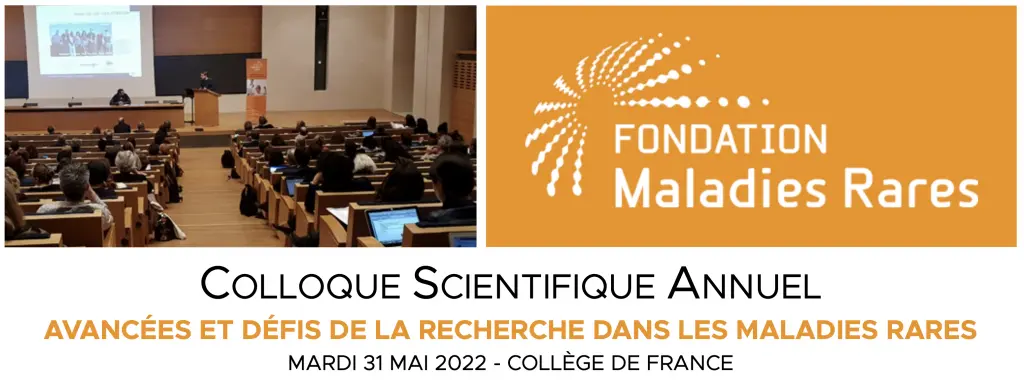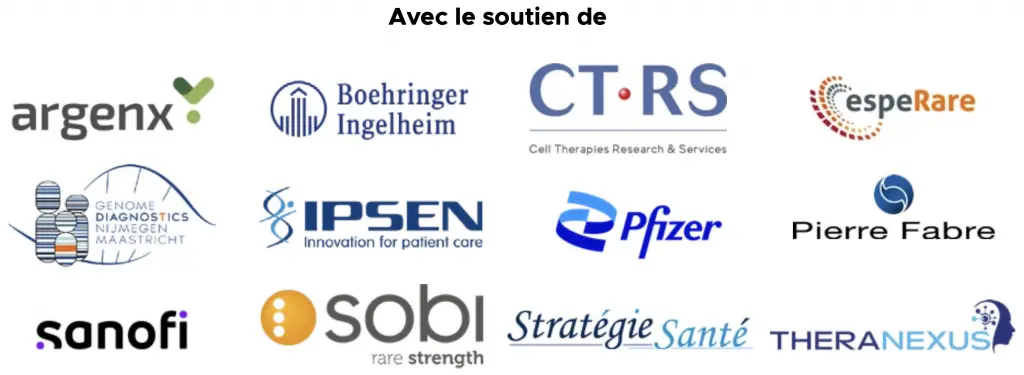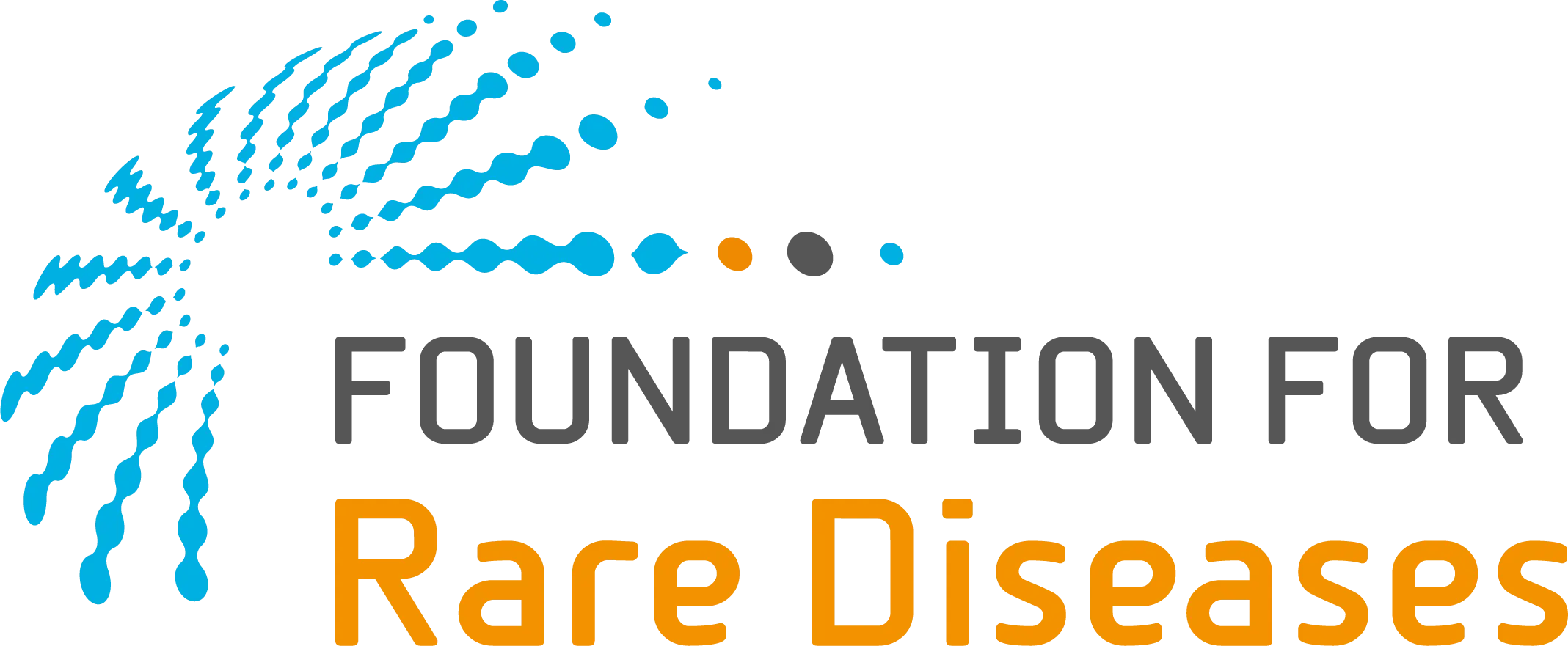Poster Award' Rare Disease and Orphan Drugs Journal
Rare Disease and Orphan Drugs Journal, is a peer-reviewed, open-access, quarterly published online journal launched by OAE Publishing Inc. in April, 2021. The journal aims to provide a forum for scientific studies and discussion covering the important regulatory, socio-economic and human science issues related to rare diseases and orphan drugs. Prof. Daniel Scherman from Paris University, Rare Diseases Foundation, is the Editor-in-Chief. The journal is call for papers now. We provide quick review and free publication. Welcome submissions!
Learn more at www.rdodjournal.com and follow us on Twitter.
Speakers' biographies:
Session 1 - Understanding the origin of rare diseases and developing diagnostics
Suzie Lefebvre, researcher at INSERM in the T3S laboratory - UMRS_1124 on the Saint-Germain-des-Prés Campus (University of Paris), is in charge of the WP4 in the research team "Degeneration and Plasticity of the Locomotor System" where she studies the molecular and cellular mechanisms underlying the neuromuscular disease of spinal muscular atrophy. After a PhD thesis in biochemistry under the supervision of Walter E Mushynski at McGill University (Montreal, Canada) on neurofilaments, she did a first post-doctoral fellowship in neurovirology with Michel Brahic at the Pasteur Institute in Paris where she identified new members of the reverse transcriptase gene family expressed in the human central nervous system. She then completed a second post-doctoral fellowship in human genetics with Judith Melki and Arnold Munnich (Hôpital Necker-Enfants Malades, Paris) where she contributed to the cloning of the SMA-determining gene, Survival Motor Neuron 1 (SMN1) and its major modifier gene SMN2. Indeed, she showed that the splicing difference between SMN1 and SMN2 is at the basis of the SMA disease leading to a deficiency in SMN protein. Recruited at INSERM, she continued to study the role of the SMN protein in RNA metabolism, moved to the laboratory of Jean Cartaud (Institut Jacques Monod, Paris), an expert in nerve-muscle interactions, and discovered that the composition of nuclear bodies is altered in SMA disease. In parallel, she identified compounds that correct these alterations in vitro. Since 2012, she has been at Campus Saint-Germain, where she collaboratively showed the beneficial effects of a repositioned drug (one of the compounds) in SMA mouse models. Now, her main goal is to understand the molecular alterations in SMA disease that could be drug-induced and improve recent innovative SMN-dependent therapies for all SMA patients.
Julien Barc leads research in genetics and epigenetics on inherited cardiac arrhythmia at the Nantes Chest Institute, where he obtained his PhD in genetics of ventricular cardiac arrhythmia. He devoted this first part of his career to identifying new syndromes, genes and mutations associated with inherited cardiac arrhythmia at risk of sudden death. More recently, Julien Barc has been studying the role of common variants in cardiac disorders. He is also involved in a national program on French genome variability called "GOLD". Finally, he is also exploring the role of regions that regulate gene expression in heart cells derived from induced pluripotent stem cells. Julien Barc has received prestigious awards such as the Edouard Coraboeuf Prize from the French Society of Cardiology and the Descartes-Huygens Prize from the Royal Netherlands Academy of Arts and Sciences. Until 2020, he co-directed the "Réseau Avenir GRRC", a national cardiovascular research network dedicated to young fellows and is now a member of the "Scientist of Tomorrow nucleus" of the European Society of Cardiology.
Stéphane Bézieau is head of the medical genetics department at the University Hospital of Nantes, in charge of the molecular genetics laboratory. He is also head of a research team involved in the identification and understanding of genetic mechanisms in neurodevelopmental abnormalities within the INSERM1087/CNRS UMR 6291 Unit. Since 2018, Prof. Bézeiau is the president of the French Federation of Human Genetics, FFGH, which federates associations involved in human genetics.
Bertrand Mollereau has been director of the Regulated Cell Death and Genetics of Neurodegeneration team at the Laboratory of Cell Biology and Modeling at the Ecole Normale Supérieure de Lyon since 2006. In 2017, he was named a senior member of the Institut Universitaire de France, a very prestigious recognition of his scientific career. B. Mollereau is an international expert on neurodegeneration, Parkinson's disease, cell death and lipid metabolism in Drosophila, topics on which he has published more than 60 publications.
Session 2 - Innovating for tomorrow's therapies: models, screening and other innovations
Isabelle Talon is a pediatric surgeon at the University Hospital of Strasbourg and a researcher at the INSERM UMR_S1121 "biomaterials, bioengineering" unit. She is in charge of the research axis on biomaterials in pediatrics of this unit.
Philippe Lory is an electrophysiologist by training and leads the team "Ion channels - neuronal excitability and channelopathies" at the Institute of Functional Genomics (IGF) in Montpellier. His expertise covers the physiology of ion channels, their regulation and genetic diseases related to mutations of these channels: channelopathies, in particular for calcium channels. Calcium channelopathies include forms of epilepsy, migraine, ataxia and autism. His laboratory studies the pathogenic mechanisms responsible for these diseases. The team is also interested in sodium channels, in particular a sodium leak channel NALCN which is very important for cellular excitability. Modeling these pathologies at different levels: in silico, in vitro and in vivo, is a major challenge to identify innovative therapeutic strategies for these rare and sometimes very severe diseases.
Valérie Desquiret-Dumas and Naïg Gueguen are hospital engineers in the Biochemistry and Molecular Biology Department of the CHU of Angers. They are both involved in the diagnosis of mitochondrial diseases. Naïg Gueguen performs biochemical assays of the mitochondrial respiratory chain activity on muscle or skin biopsies of patients. Valérie Desquiret-Dumas is involved in high throughput sequencing of mitochondrial DNA and nuclear gene panels related to these pathologies. In connection with their diagnostic activities, they also lead a research theme within the Mitolab laboratory (INSERM1083-CNRS6015) which aims to better understand the link between the structure and function of the mitochondrial respiratory chain and cellular metabolism in order to propose new and more targeted therapeutic strategies for these pathologies. In recent years, they have been particularly interested in the complex I deficiency of the respiratory chain, the most common deficiency found in patients with mitochondrial diseases (up to 30% of cases). Their work has shown that depending on the degree of assembly of this complex, the metabolic adaptations implemented by the cells to compensate for this deficit differ. This study has led to a better understanding of the pathophysiology of complex I deficiencies and has opened the door to the search for new therapeutic molecules targeting more precisely the pathways involved in these different metabolic adaptations.
Christie Mitri is a third year PhD student in Physiology, Pathophysiology and Therapeutics at Sorbonne University, studying under Dr. Olivier Tabary at the Saint-Antoine Research Center (SARC). Before starting her PhD, she completed her master's degree in Science, Technology and Health (2019). Her research title is "The development of a novel antisense therapy for all cystic fibrosis patients." Her PhD work, for which she won the best oral presentation award at the European Cystic Fibrosis Society conference, focuses on the use of novel RNA technologies and the development of antisense therapeutics to activate an alternative channel (Anoctamin-1, TMEM16a) that could compensate for the deficiency of the main chloride channel (Cystic fibrosis Transmembrane Regulator, CFTR) in cystic fibrosis pathology to treat all patients.
Session 3 - Improving Everyday Life: Research in the Humanities and Social Sciences
Agnès Dumas is a research fellow at INSERM since 2018 within the UMR 1123 (University of Paris/ Inserm) - ECEVE (Clinical Epidemiology and Economic Evaluation applied to vulnerable populations). A sociologist, she was trained in qualitative and quantitative methods at Sciences-Po Paris and the University of Paris Descartes, and her postdoctoral research was conducted at the Institut Gustave Roussy and then at INSERM. For the past 15 years, she has been studying the issue of social inequalities in health and the way they are formed in different contexts. Her current research focuses on the care and life trajectories of adolescents and young adults treated for cancer or a rare disease. Her work aims to understand how the health and well-being of patients can be improved through interventions and prevention policies. She is also a member of the Ethics and Cancer Committee and the Inserm Ethics Evaluation Committee (CEEI) and an expert for the CESREES (Ethical and Scientific Committee for Research, Studies and Evaluations in the Health Field).
Odile Rohmer is a professor of experimental social psychology at the University of Strasbourg. She is interested in the barriers and levers to social inclusion of people with disabilities. Through several research programs, she analyzes the particular case of students with disabilities. This work has been published by Presses Universitaires de Bruxelles.
Pierre Ancet is a university professor in the philosophy of disability and a researcher at the Interdisciplinary Research Laboratory "Societies, Sensibilities, Care" (LIR3S), UMR 7366 CNRS - University of Burgundy. He has published more than 70 articles specifically on the issue of disability in the field of human and social sciences. His latest book is: L'Épreuve du temps. Accidents, repetitions, rhythms and disability, Toulouse, Érès, 2021.
Oriane Graciano has been a speech-language pathologist for 8 years and has been working for 3 years in an autism spectrum disorder diagnostic service for children and adolescents. Her practice focuses on access to communication in all its forms.
Session 4 - Proof of therapeutic concepts
François Feillet is a pediatrician at the Centre de référence des Erreurs Innées du Métabolisme at the Nancy University Hospital. A pediatrician since 1992, he also obtained his PhD in science on the metabolic consequences of malnutrition in 2000. He became a professor of pediatrics in 2003, was a pediatric resuscitator for 13 years and is now the head of one of the eight national reference centers for Inborn Errors of Metabolism in France. He treats patients with metabolic diseases from birth to adulthood. On the research side, Prof. Feillet is a member of the INSERM U954 unit directed by Prof. Guéant, whose main themes are the link between monocarbon metabolism and malformative syndromes (conotruncal heart disease, cleft lip and palate, and spina bifida); abnormalities of fatty acid metabolism and rhythm disorders in adults; phenylketonuria (genotyping and relationship between genotype and sensitivity to tetrahydrobiopterin, announcement of the diagnosis...) and the treatment of Menkès disease. He has published 198 articles referenced on PUBMED and has given 240 national and international conferences.
Antoine Ferry is a physician and clinical pharmacologist. He is President of CTRS Laboratories, a pharmaceutical company specialized in orphan drugs and niche products. He is founder and president of HESPERUS, a consulting and development company specialized in orphan drugs. He is also a director of ATEROVAX, a biotechnology company specialized in the diagnosis of cardiovascular pathologies. He is currently Secretary General of AMLIS and Vice President of the Rare Disease Committee and the Innovation & Health Pathways Committee of LEEM.
Gilles Laverny is a biologist. He did his Ph.D. in a biotechnology company in Milan (Bioxel, S.p.a.), Italy, as part of an international Marie Curie consortium, where he focused on the therapeutic potential of vitamin D receptor agonists for inflammatory bowel diseases. He also contributed to the preclinical and clinical development of Elocalcitol, a candidate vitamin D analogue for the treatment of benign prostate hyperplasia. When he joined Dr. Metzger's team at the Institute of Genetics and Molecular and Cellular Biology (IGBMC, Illkirch, France), he focused on the mechanisms underlying vitamin D signaling activities in pathophysiological conditions, particularly in calcium regulation. In 2016, he obtained an INSERM research position and continues his research on the pathophysiological roles of vitamin D signaling pathways.
Magali Richard has fifteen years of experience in the field of biotechnology, combining academia and industry. Magali graduated from Ecole Polytechnique and Ecole des Mines de Paris, and holds a PhD in molecular biology (Paris 6), on non-viral gene therapy approaches in mouse models of lysosomal diseases. From 2009 to 2011, she worked as a Scientist at Biomarin Pharmaceuticals, pursuing in the field of rare diseases and gaining experience in biotechnology in the US. Subsequently, Magali spent six years at The Boston Consulting Group (2011-2016), as a member of the Healthcare practice in the Paris office, working with various large pharmaceutical companies on all activities of the value chain from research to commercialization, as well as with biotech companies and investors around new value creation models for emerging technologies. She then joined the Executive Committee of DBV Technologies as Director of Strategy between 2016 and 2019. Since 2020, she co-founded and co-managed with David Schilansky Home Biosciences, the first venture builder dedicated to Biotechnology in Europe. She also leads One Biosciences, the first biotech co-founded by Home Biosciences with the Institut Curie.


